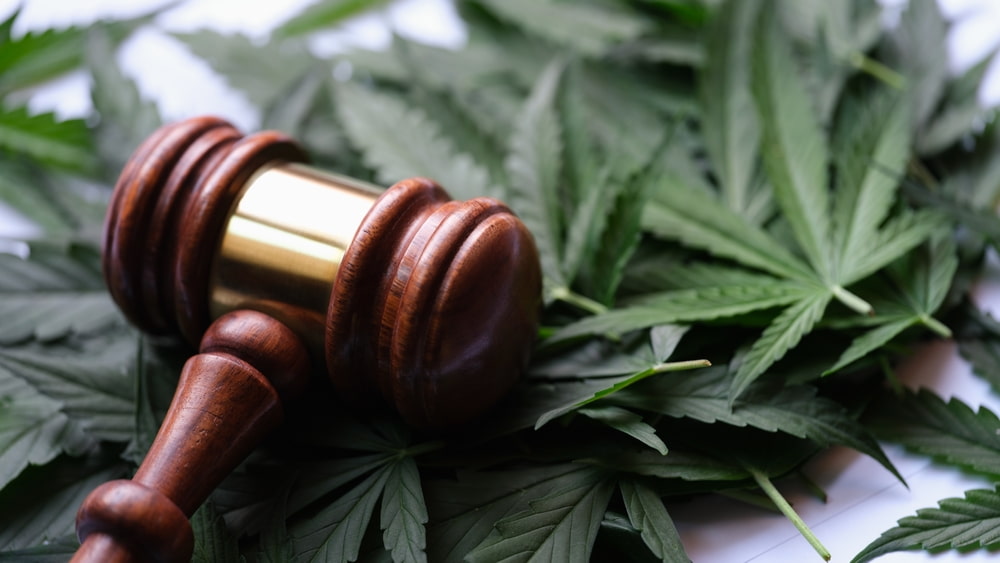California Prop 64 FAQ

Proposition 64 legalizes marijuana in California with restrictions on possession, use, and cultivation. It also allows for expungement of past convictions and reduced penalties. However, legal challenges and penalties remain, making legal guidance essential.
To use a cliche, the jury is still out on the Adult Use of Marijuana Act. California is now one of eight jurisdictions that have “legalized” marijuana, although that term is something of a misnomer, and another twenty states have liberal medical marijuana laws, so the tide seems to be turning.
However, Attorney General-designate Jeff Sessions has indicated that the Justice Department will abandon President Obama’s policy and aggressively prosecute marijuana possession cases, so some observers believe these laws may become moot.
A few provisions are automatic, but to take full advantage of Proposition 64, most people will have to take some action. When it comes to taking action, the aggressive criminal defense lawyer at The Rodriguez Law Group Los Angeles Criminal Defense Attorneys are among the best. We know the law, and we know how to make it work for people like you.
Quick Navigation Menu
What Does Prop 64 Mean?
Many law enforcement groups in California actively opposed Proposition 64, so they are probably not too happy that it passed. In practical terms, the new marijuana law may be like the old cell phone law.
From 2008 until the end of 2016, drivers could check Facebook, watch videos, take pictures, view maps, and do anything else on their cell phones, except talk or text. Nevertheless, some law enforcement agencies took a “shoot first and ask questions later” approach, by writing citations for any cell phone use and putting the onus on drivers to prove that they weren’t talking or texting.
Starting January 1, 2018, the number of marijuana arrests may be largely unchanged, and it will simply be up to the defendants to have aggressive lawyers that will use a AUMA defense to get the case thrown out. Until then, there may be more marijuana arrests than usual, as courts look to squeeze every last cent out of POM (possession of marijuana) fines and court costs.
Who Benefits from Prop 64?
Proposition 64 is retroactive, so as soon as it takes effect, anyone convicted under the old law can apply for expungement. Proposition 64 also reduces some felonies to misdemeanors, and reduces some misdemeanors to infractions. Furthermore, anyone currently on probation or otherwise serving a covered POM sentence is eligible for release. These provisions take effect immediately.
Going forward, most convictions under Health & Safety Code 11357 will be automatically sealed after two years. Pretrial diversion on deferred adjudication is available as well. That’s a good thing because two years is a long time to go without a job or a place to live, since many bosses won’t hire people with marijuana possession convictions and many landlords won’t rent to these folks.
Can I Smoke Marijuana During My Probation?
Proposition 64 does not change the fact that marijuana and synthetic marijuana are controlled substances under both state and federal law, so tread very carefully here.
The specific terms and conditions of probation always control, but as a general rule, people serving drug or alcohol-related probation cannot use controlled substances or alcohol. As for other types of probation, small amounts are probably okay.
What is Legal?
People over 21 can possess, transport, purchase, process, obtain, or give away up to 28.5 grams of natural marijuana or up to eight grams of synthetic marijuana. 28.5 grams is roughly sixty or seventy joints (the rule of thumb is two or three joints per gram). It is also legal to keep and cultivate up to six plants, as long as they are hidden from public view. Finally, it is legal to smoke marijuana inside private residences; the law is a little unclear as to whether that designation includes yards and outdoor common areas.
What is Illegal?
AUMA immunity does not apply to marijuana possession or use within 1,000 feet (about three football fields) from a daycare or school, and in many urban areas, almost any given spot is within a prohibited zone. It’s illegal to smoke marijuana in public, in a “No Smoking” area, in a designated drug-free area, while operating a motor vehicle, or in certain government buildings, like a correctional facility or probation office.
What are the Penalties?
Most penalties under the new HSC 11357 are “infractions” as opposed to “offenses.” The good news is that convictions are not technically criminal records; the bad news is that many of the normal Constitutional protections, such as the right against self-incrimination, don’t apply in infractions.
People over 21 who use marijuana in public places must pay a maximum $100 fine; people under 18 who use in public places must pay a fine, perform up to ten hours’ community service, and attend a drug education class. The fine goes up to $250, and the community service requirement goes up to twenty hours, for possession within 1,000 feet of a school or daycare, or smoking marijuana in a “No Smoking” zone. Possession at a daycare or school is an infraction for a first offense (maximum $250 fine) and a misdemeanor for a subsequent offense (maximum $500 fine and/or ten days in jail).
Get Help from an Experienced Lawyer
You should speak to a criminal defense attorney to help you. We offer free consultations so you can have your case reviewed by a seasoned professional.

CONTACT A CRIMINAL DEFENSE ATTORNEY
Facing criminal charges in Los Angeles? Trust The Rodriguez Law Group Los Angeles Criminal Defense Attorneys to secure the best possible outcome. Our experienced criminal defense lawyers have 20+ years of expertise in handling criminal cases.


